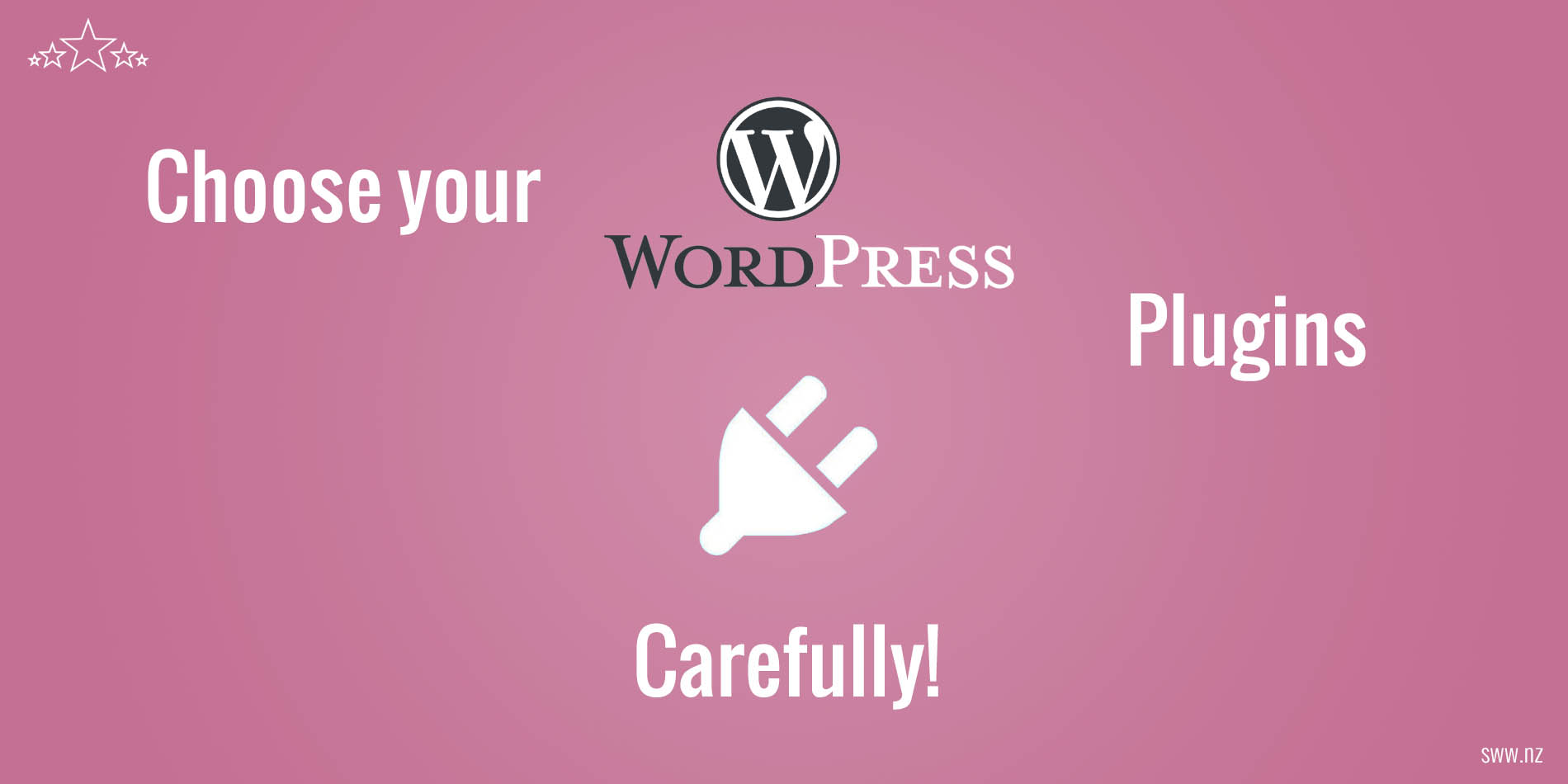
One of the great strengths of WordPress is the availability of a vast amount of ‘plugins’ (a.k.a extensions or add-ons) that can add almost any functionality that you can think of or change the way WordPress works. The WordPress plugin repository alone contains around 60,000 free plugins. There are also countless premium plugins available from multiple sources and online marketplaces. With all these plugins available to enhance a website, it can be tempting to over-use plugins but there can be downsides to using plugins on a website.
Common WordPress plugin pitfalls to avoid
- Bloat
Plugins add more code to a website which has to be processed and delivered to the user’s web browser. Some plugins are small and efficient but others are less efficient and can include large libraries of code only to use a tiny fraction of the code. This ‘bloat’ can have a significant negative effect on your website performance. - Plugin abandonment
Many plugins end up getting abandoned, i.e. the developers don’t continue to test the plugins with new releases of WordPress and update them to keep them compatible with the new versions of WordPress as they are released. This can cause websites to malfunction or have security vulnerabilities. - Security risks
Any developer can develop and release a plugin for WordPress, so the quality of coding varies widely. This can introduce a risk of security vulnerabilities which can compromise a website’s security. - Added maintenance
Plugins need to be kept up to date to keep your website secure and everything working together. Generally WordPress makes updates simple and fast with one click updates, or even auto-updates, but you also need to test a website after updates to make sure the update hasn’t broken something on your website. - Not cleaning up after uninstalling
Some plugins add data and tables to to the website database. Often when the plugin is uninstalled, this data is left behind. A well written plugin should have an option to remove all it’s data upon uninstall. Look for this option and make sure it is selected before uninstalling the plugin.
Guidelines for choosing WordPress plugins
- Do you really need the plugin?
This is the first thing to ask when considering installing a plugin. Is the functionality provided by the plugin important to your website? Can you achieve what you are trying to do without using a plugin? - Does the plugin have a good track record?
Check how long the plugin has been around for, it it has been updated regularly. Check the reviews to see if the plugin is highly rated or if there are any concerning negative reviews. Check if the plugin developer(s) have other plugins and if those plugins also have good track records. - Watch out for ‘freemium’ plugins
If the plugin is a ‘freemium’ plugin, make sure that the free version does everything you need or the paid version is worth the price to you. Some ‘freemium’ plugins offer such limited functionality that they are essentially just advertisements for the paid versions. And some overload the WordPress admin area with upgrade nags that can be quite annoying. - Avoid duplicate functionality
Check that the plugin isn’t duplicating functionality that you already have in another plugin or in WordPress itself. - Understand the terms of paid plugins
Some plugins require a one time payment while others are a subscription model where you have to pay every year. Sometimes the subscriptions are just for access to support and you can still have access to updates without renewing the subscription. Just make sure you understand the terms. - Compare and try out similar plugins
There are often many plugins available for a given task of functionality. Don’t just grab the first one, take the time to compare the different options available. Install and try out the top contenders to pick the one that works best for your requirements. - Make sure the plugin is adequately documented
For plugins with complex functionality, documentation is an important factor to consider. Check that there is adequate documentation so that you can understand how to properly use the plugin. - What support is available?
Again, for more complex plugins, having access to support can be important. Check what support is available and if support (or lack of it!) is talked about in plugin reviews. - Watch out for becoming dependant on a plugin
Be careful not to make a website dependant on a particular plugin if possible. In some cases where the plugin is a major piece of the website, e.g. WooCommerce for an online store, this is unavoidable. Page builders are examples of unnecessary plugins that make a website totally dependant on them. They change the way pages are built and edited and they rely on the plugin to generate the output for the pages and if you disable the plugin, your website is completely broken (see Why page builders suck).
